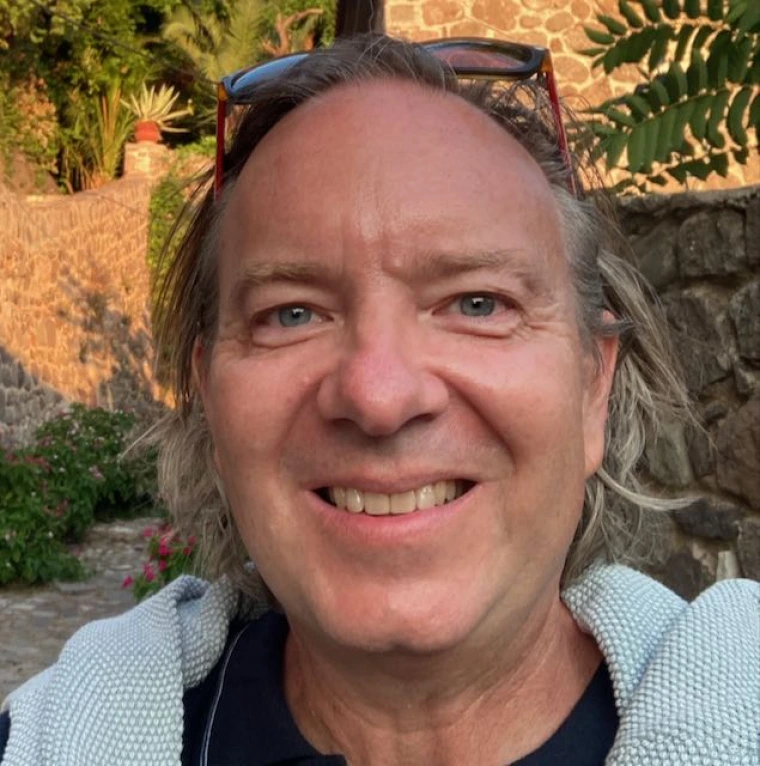Brian Silverstein

About Brian Silverstein
My current work is examining the interactions of culture, power, technology, and the environment through a new project on the political ecology, technopolitics and political economy of olive oil production in Turkey, in collaboration with several producers in Turkey’s Ayvalik and Akhisar regions. This project uses ethnographic methods to explore the labor of qualification and value-making, the economy of qualities, and socio-technical innovation in the Turkish olive oil industry. This work reflects my abiding interest in commensuration across histories and socialities.
This work also builds on my research on technopolitics and institutional reform in Turkey, specifically in the area of statistics, the topic of my book The Social Lives of Numbers: Statistics, Reform, and the Remaking of Rural Life in Turkey. Statistics is the heading of one of the chapters in Turkey's EU entry negotiations, and the collection and use of statistics in Turkey has taken on a new importance and new roles and functions in the country as they become more tightly integrated into apparatuses of government. At the same time wide-ranging agricultural reforms have been carried out, and the project examined statistics as part of new mechanisms being developed for the generation of knowledge about agriculture, and the role they play in actually changing the country's agriculture. Statistics turn out to be 'technical,' but also eminently social and political phenomena, so studying statistical reforms is a lens on emergent regimes of knowledge and power in Turkey, and the selves they are involved in producing.
Earlier work was on religion in Turkey, culminating in a book entitled Islam and Modernity in Turkey. Drawing on ethnographic fieldwork and archival work with late Ottoman materials, the book brings together genealogical (critical histories of the status of the present) and ethnographic work on Islamic traditions of discourse and practice in Turkey. The book argues that Islam has largely been turned into a religion in Turkey, which most Turks consider to be primarily a matter of personal choice and private belief, and shows how such an arrangement came about. In the process I explain why most observant, even conservative Muslims in Turkey do not see such a conception and practice of Islam as illegitimate. The book first establishes the nature of contemporary Islamic discourses and practices and the status of modernity in Turkey as initiated by Ottoman reform movements (in contrast to colonialism); then examines Islamic practices as techniques of ethical self-formation and how these are structurally transformed by the mass mediation and liberalization of the social, economic and political environment; and finally analyzes how this liberalization has transformed the religious sphere, the nature of politics, and the place of moral discourse in public life.
Selected Publications
"Remaking the Qualities of Turkish Olive Oil." Gastronomica, 24 (1), 2024: 54–66. doi: https://doi.org/10.1525/gfc.2024.24.1.54
"Economizing Chemical Compounds: The Production of Qualities in Turkish Olive Oil," Economy and Society, 52:4, 2023: 697-718, DOI: 10.1080/03085147.2023.2274223
The Social Lives of Numbers: Statistics, Reform and the Remaking of Rural Life in Turkey. Palgrave Macmillan, 2020. DOI: 10.1007/978-981-15-9196-9
"Commensuration, Performativity and the Reform of Statistics in Turkey," American Ethnologist, 45(3), 2018. DOI: 10.1111/amet.12668
“Modernity.” In Oxford Bibliographies in Anthropology. Ed. John Jackson. New York: Oxford University Press, 2017. DOI: 10.1093/obo/9780199766567-0167
"Statistics, Reform, and Regimes of Expertise in Turkey," Turkish Studies, 15(4), 2014. DOI: 10.1080/14683849.2014.983690
“Sufism and Everyday Ethics in Turkey,” in Donna Lee Bowen and Becky Schulthies, eds. Everyday Life in the Muslim Middle East, 3rd ed. Bloomington: Indiana U Press, 2014.
Islam and Modernity in Turkey. Palgrave Macmillan, 2011.
"The Subject of Reform in Turkey: Liberalization as Government and Critique," Anthropology Today, 26(4), 2010.
"Sufism and Governmentality in the Late Ottoman Empire," Comparative Studies of South Asia, Africa and the Middle East, 29(2), 2009.
"Disciplines of Presence in Modern Turkey: Discourse, Companionship and the Mass Mediation of Islamic Practice," Cultural Anthropology, 23(1), 2008.
"Sufism and Modernity in Turkey: From the Authenticity of Experience to the Practice of Discipline," in M. van Bruinessen and J. Day Howell, eds. Sufism and the Modern in Islam, London: I.B. Tauris, 2007.
"Islamist Critique in Modern Turkey: Hermeneutics, Tradition, Genealogy," Comparative Studies in Society and History, 47(1), 2005.
"Newspapers and Print Media: Turkey" and "Radio and TV: Turkey" entries in Encyclopedia of the Modern Middle East and North Africa, Rev. Ed. R. Simon, R. Bulliet, et. al. eds. New York: MacMillan, 2004.
"Islam and Modernity in Turkey: Power, Tradition and Historicity in the European Provinces of the Muslim World," Anthropological Quarterly, 76(3), 2003. [Reprinted in David Westerlund and Ingvar Svanberg, eds. Islam in the West: Critical Concepts in Islamic Studies. London: Routledge, 2010.]
"Discipline, Knowledge and Imperial Power in Central Asia: 19th Century Notes for a Genealogy of Social Forms," Central Asian Survey, 21(1), 2002.
Courses Taught
ANTH 150B: Many Ways of Being Human: Globalization
ANTH 200 Cultural Anthropology
ANTH 305 Cultural Change
ANTH/SOC 310 Culture and the Individual
ANTH/RELI 411/511 Religion and Secularism
ANTH/HIST/NES 459A/559A Turkey: Culture, Power & History
ANTH/HIST 612 Modernity
ANTH 613 Culture and Power
ANTH 696B Neoliberalism and After
Areas of Study
Turkey, Europe, Middle East
Projects
The Social World of Olive Oil in Turkey (2019-)
Research Interests
Culture & technology, quantification, food systems, institutional reform, religion and secularism, social and political theory, historiography.

